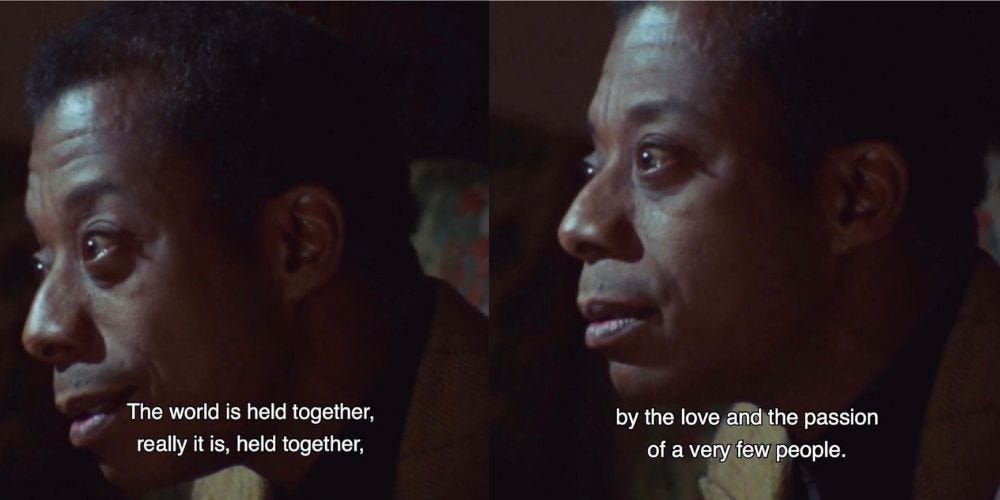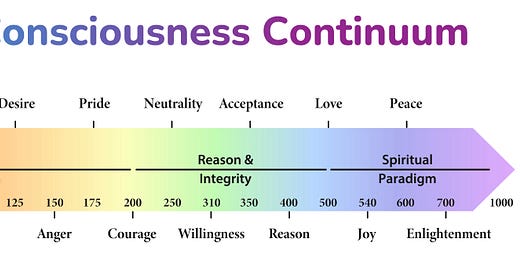For whatever reason, I have long resisted the temptation to call myself a “lover girl.” Despite being a lifelong lover (pun fully intended) of rom-coms; any semblance of tenderness between human beings, animals, and often plants; and even corny Valentine’s Day shit you find at the drugstore, it is a label I have steadfastly avoided. Part of it is my resistance to attach myself to any of the vague but popular internet terms being pumped out daily. “Lover girl” is one of many such terms; hearing it a million times has done very little to illuminate the meaning to me. See also: “‘90’s love.” If you’re familiar with the phrase, it might be because you’ve heard someone proclaim, “I’m looking for that ‘90s love” on an episode of Pop the Ballon or Find Love. This is another murkily defined term that seems to suggest that loving love, being attracted to the idea of a relationship where one gives and receives care, affection, and protection (among many other lovely things), somehow makes one an anomaly or anachronism. I mean — and I don’t want to sound like an asshole here — but if you love the experience of love, you’re not special. You’re a human being, and there’s like 8 billion of us.
Another reason for my aversion to claiming lover girl status is that my own understanding of love was underdeveloped. For the last couple of years, I’ve been searching for what “love” really means, and for a while, I kept coming up short. Love is another word we hear so often, in so many contexts, from so many different kinds of people, that over time we can piece together some kind of meaning — but not a clear definition. Love, as most people use the term, is generally positive, mostly uplifting, but it’s also confusing, and sometimes it’s painful, but it’s always desirable, and sometimes it’s covetable, and it’s something we need, it’s something we really need, it’s something we need so urgently and desperately it sometimes scares us. The fulfillment of this primordial need can make us erratic; it can make us more mature; it can make us fat and happy; it can make us go through a phone. With all these competing ideas attached to love, is it any wonder that barely anyone has any idea what the fuck we’re all talking about?
I started my study on love with a banger, All About Love by bell hooks, which is powerful enough to knock you on your ass if you’re not ready for it. Early in the text, hooks shares a definition of love from The Word Less Traveled by M. Scott Peck, a self-help book from the late ‘70s. Peck writes that love is “the will to extend one’s self for the purpose of nurturing one’s own or another’s spiritual growth,” which pretty much says it all, to be honest. But naturally this raises another question: what the hell is spiritual growth? When I first read All About Love, I thought I had some idea, but I soon came to realize that I didn’t, not really. At the time, “spiritual growth” conjured images of the Bible, going to church, prayer and fasting – all things that can be useful tools on a spiritual journey – but I had grown up with those things, and they hadn’t quite led me to where I wanted to go. What was missing was my understanding of what Spirit really is – the Infinite Intelligence that animates us and all living things; the Universal Consciousness that works with, through, and for us to create our realities. With this new knowledge, I began to seek out information on the nature of consciousness, believing with full faith that I would find what I needed.
Eventually, my search led me to the work of Dr. David R. Hawkins, whose research I referenced last month. One of Hawkins' most influential contributions to the field of consciousness research is his Levels of Consciousness Continuum, which measures levels of human consciousness on a logarithmic scale from 1 to 1,000. As a refresher for those of us who haven’t taken a math class in a while (me🙋🏾♀️) , each step on a logarithmic scale increases by a measure of multiplication, not addition. This means that values on a logarithmic scale grow exponentially. In reference to the Levels of Consciousness Continuum, this means that level 310, or Willingness, does not represent a level of consciousness that’s approximately double that of Anger, or level 150. It actually means that the level of Willingness is exponentially higher than Anger, such that we can’t really conceive of it – 10 to the 310th power (or 10310) is equal to one novennonagintillion, whatever the hell that means. All that to say, to jump from one level of consciousness to another, you’ve gotta have serious hops.
In Hawkins’s work, a level of consciousness describes a state of awareness a person dwells in, a kind of filter that colors an individual’s perception of the world based on their thoughts, feelings, and level of understanding. Your level of consciousness reflects your energetic vibration, which affects how you perceive and interact with the world around you – which in turn influences how the larger Infinite Intelligence interacts with you. Every level of consciousness has a specific vibrational frequency, which can be thought of as an energy field. Higher levels of consciousness are more powerful energy fields, allowing us to attract more positive experiences that align with our desired realities. Reaching a higher level of consciousness strengthens the electromagnetic field around our bodies, allowing our energy to interact with the larger energetic field of the Universal Consciousness in a more focused way.
From this perspective, it’s clear that we should all strive to reach the higher levels of consciousness for the good of ourselves, our communities, and the larger world around us. In Power vs. Force, Hawkins writes that crucial change happens at level 200, or Courage, where “power really first appears.” Courage is the level at which people begin to shed their victimhood and develop a willingness to try new things – in effect, they reach the point of trying to control the things they can in hopes of creating a new life, as opposed to seeing themselves as completely helpless in their situations. This is the level of learning new professional skills and seeking education, of beginning to face fears rather than letting them hold you back. Even more pivotal is reaching level 350, or Acceptance, the level at which people accept their true nature as the creator of their realities. “An enormous jump–taking back one’s own power–is completed at this level,” leading to greater self-discipline and an ability to prioritize long-term goals over short-term pleasure.

But greater than both of these is level 500, or Love, which Hawkins is quick to note is not like the flash pan (but very fun and sexy) chemical reaction we see in the movies. As a level of consciousness, “loving is a state of being. It is a way of relating to the world that is forgiving, nurturing, and supportive...It has the capacity to lift others and accomplish great feats because of its purity of motive…Love is…inclusive and expands the sense of self progressively. Love focuses on the goodness of life in all its expressions and augments that which is positive. It dissolves negativity by recontextualizing it rather than by attacking it.” At the level of Love, practices like forgiveness, compassion, empathy, and selflessness are commonplace. Based on this, it’s easy to see that if we were all operating from a place of Love, we’d live in a much happier, more equitable world.
This is also supported by spiritual texts, like the Bible. The Book of John opens with the following verse: “In the beginning was the Word, and the Word was with God, and the Word was God.” A few chapters later, John writes, “Dear friends, let us love one another, for love comes from God. Everyone who loves has been born of God and knows God. Whoever does not love does not know God, because God is love,” (1 John 4:7-8). I’m no mathematician, but I do understand the transitive property. If The Word was God, and God is love, then The Word is Love. This realization illuminated a couple of things I’ve always known intuitively, but didn’t always have the language to articulate. The first is that if someone is using Christianity as a license to be hateful, then something is seriously, seriously awry. The second is that centering love as the primary organizing principle of my life isn’t silly or stupid or childish; from a scientific perspective, it actually makes perfect sense. Not only do I want to live in a more just, conscious, and loving world, I also do creative work, which flows much more easily and naturally when coming from a place of love. To put it plainly, you do your best work when you love it. From a levels of consciousness perspective, creativity flourishes at higher levels because expanded awareness allows us to see things in different ways, make new connections, and recognize beauty in unexpected places.
There’s a scene in the 1999 film American Beauty that exemplifies this perfectly. In it, Ricky, a teenage filmmaker, shares some camera footage with his crush, Jane. He asks her, “you want to see the most beautiful thing I’ve ever filmed?,” before showing her a clip of a plastic bag blowing in the wind. It mingles with piles of fall leaves before a brick wall, floating up toward the sky before diving back down again. There is the matter-based perspective – look at this piece of trash blowing around – but there is also something more. As you watch the scene, you can see the beauty; you can see why someone with what we would call “the right eye” would choose to capture this on film. What Hawkins’ work makes clear is that “the right eye” is a certain level of consciousness, and, as the scene goes on, it becomes clear that Ricky is operating from Love. He describes the bag as “dancing” with him, “begging [him] to play with it…,” before sharing the new understanding the experience led him to: “that's the day I realized that there was this entire life behind things, and this incredibly benevolent force that wanted me to know there was no reason to be afraid. Ever.” What Ricky is describing here is obvious to me now, but it wasn’t so clear to me the first time I saw the film. This is God, the Universal Consciousness, the Infinite Intelligence, the term of your choosing – a benevolent force that animates all things, that wants us to know that there is nothing to fear, because this force is the same thing as Pure Love in action. This Love is a divine creative force, which is precisely why we are here on earth to pursue the things we love: in doing so, we will always do our best creating.
On the album Rubber Soul, there’s a particularly groovy Beatles track called “The Word,” a folksy-funk tune that reminds us that the path to a more enlightened world is love. “Say the word and you’ll be free,” the song announces in the very first line, before asking, “have you heard the word is love?” At two minutes and forty-three seconds, it’s a short song, but in that time, John Lennon and Paul McCartney, who co-wrote it, manage to sum up everything I’ve learned in this journey to discover who I am and what I’m here for. “In the beginning I misunderstood / But now I've got it, the word is good,” and that word is Love. If I tell you the story of how I became aware of this song, this essay will go on for another two-thousand words, but the short answer is the same answer to the question “why do I have anything good in my life?”: the Infinite Intelligence brought it to me at the exact moment I needed it. I am a lover girl, it seems; there’s no denying it now. I consider the title a badge of honor, though it took me a while to get here. I love love, but I’m not unique in that. I’m just a human being, and there’s like 8 billion of us.






